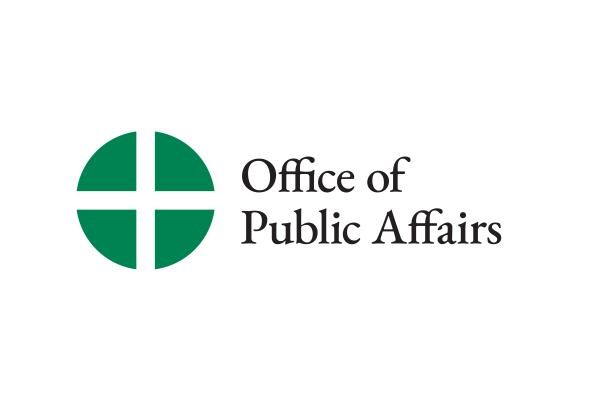Diocesan and Religious Representatives Attend Institute on Islam and Catholic-Muslim Relations
WASHINGTON (July 26, 2002) –- To improve their understanding of Islam and their skills in relations with Muslims, twenty-five diocesan and religious community representatives for ecumenical and interreligious relations participated in the Advanced Institute on Islam and Catholic-Muslim Relations, Ju
WASHINGTON (July 26, 2002) –- To improve their understanding of Islam and their skills in relations with Muslims, twenty-five diocesan and religious community representatives for ecumenical and interreligious relations participated in the Advanced Institute on Islam and Catholic-Muslim Relations, July 17-23, 2002. Directing the institute were Bishop Michael L. Fitzgerald, Secretary of the Holy Sees Pontifical Council for Interreligious Dialogue, Dr. John Borelli, Interim Director of the USCCBs Secretariat for Ecumenical and Interreligious Affairs, and Professor Scott Alexander, a specialist in Islamic studies and Director of the Catholic-Muslim Studies Program at Catholic Theological Union, Chicago. Assisting them in planning and in making local arrangements were Fr. Thomas A. Baima, Provost, University of St. Mary of the Lake, Mundelein, Illinois, and Rita George, Associate Director of the Office for Ecumenical and Interreligious Affairs of the Archdiocese of Chicago. The institute was held at the Cenacle Retreat House in the Lincoln Park district of Chicago.
Bishop Fitzgerald and Professor Alexander began morning and evening sessions with 15 minutes of focused study of selected passages in the Quran. In all, thirteen particularly significant passages in the Quran were the object of careful reflection and discussion. The institutes principal sessions concentrated on the person of Muhammad and his importance in Muslim life and piety, the Quran and its interpretation, faith and practice in Muslim daily life, the role of the mosque in Muslim societies, Islam in the United States, diversity among Muslims, including differences between Shiite and Sunni Muslims, the history of Christian-Muslim relations, the teachings of the Catholic Church on Islam, pastoral questions, such as marriage and praying together, in Christian-Muslim relations, and political Islam. Participants raised special pastoral questions and other issues of concern to them and relevant to situations in their dioceses.
Two Muslim scholars addressed the group. Sheikh Mohammed Amin Kholwadia, President of Darul Qasim, a Chicago-based institution promoting the study of Islam, and Dr. Ghulam-Haider Aasi, Chair of Islamic Studies and Comparative Religion at the American Islamic College, also in Chicago. Sheikh Kholwadia spoke on the views of Ibn Arabi, a 13th century influential Muslim mystic, regarding religious diversity and applied these to contemporary interreligious relations. Dr. Aasi gave an extended exegesis of passages in the Quran (especially 5:51), which are misinterpreted to promote hostility between Muslims and Christians. Dr. Aasi, a longstanding partner in Catholic-Muslim dialogues, demonstrated the time-honored method of using the whole of the Quran to interpret individual passages, which often serves in contemporary times as an important corrective for certain extremist and highly politicized interpretations.
On Friday during the institute, participants split into three groups, each visiting a mosque in the Chicago area for Friday prayers followed by discussion and refreshments with the hosting communities. The mosques were each distinct in their characterone primarily African-American, another primarily Palestinian, and the third primarily Bosnian but with sizeable South Asian membership.
The six-day institute is one of a series of intensive summer institutes which the U. S. Bishops Committee for Ecumenical and Interreligious Affairs has co-sponsored with the National Association of Diocesan Ecumenical Officers for more than 20 years. This was the first advanced institute on Islam. In previous summers, institutes for ecumenical leadership, for interreligious leadership, and an advanced institute on ecumenism have met. Soon after September 11, 2001, the idea for a summer institute on Islam and Christian-Muslim relations was suggested and then quickly endorsed by the sponsors.
The participants in the institute on Islam and Christian-Muslim relations were: Deacon Charles Clark (Diocese of Harrisburg), Sr. Joyce Cox, BVM (Archdiocese of Seattle), Fr. Jeffrey Dauses (Archdiocese of Baltimore), Fr. Charles Dautremont (Diocese of Grand Rapids), Sr. Audrey Doetzel, NDS (Sisters of Our Lady of Sion), Judge Mary Fingal Erickson (Diocese of Orange), Fr. Robert Flannery (Diocese of Belleville), Deacon Joseph Giuliano and Sr. Maryanne Guertin, SSJ (Diocese of Norwich), Fr. William Hammer (Archdiocese of Louisville), Sr. Josephine Kase, IHM (Archdiocese of Philadelphia), Fr. Michael Kavanaugh (Diocese of Savannah), Fr. Philip Latronico (Archdiocese of Newark), Judith Longdin (Archdiocese of Milwaukee), Fr. Michael Lynch (Diocese of Brooklyn), Fr. Joseph Marcoux (Diocese of Rochester), Fr. Francis X. Mazur (Diocese of Buffalo), Dean Thomas McGowan (Diocese of Oakland), Fr. David Michael (Archdiocese of Boston), Seamus OGrady (Archdiocese of Sydney, Australia), Fr. Jose Rubio (Diocese of San Jose), Fr. Thomas Ryan, CSP (Paulist Fathers), Loretta Tracey (Diocese of Tucson), Fr. Julian von Duerbeck, OSB (St. Procopius Abbey and Monastic Interreligious Dialogue), and Alan Wright (Archdiocese of Newark).
For more information contact:
Dr. John Borelli
Secretariat for Ecumenical and Interreligious Affairs
202 541-3020

